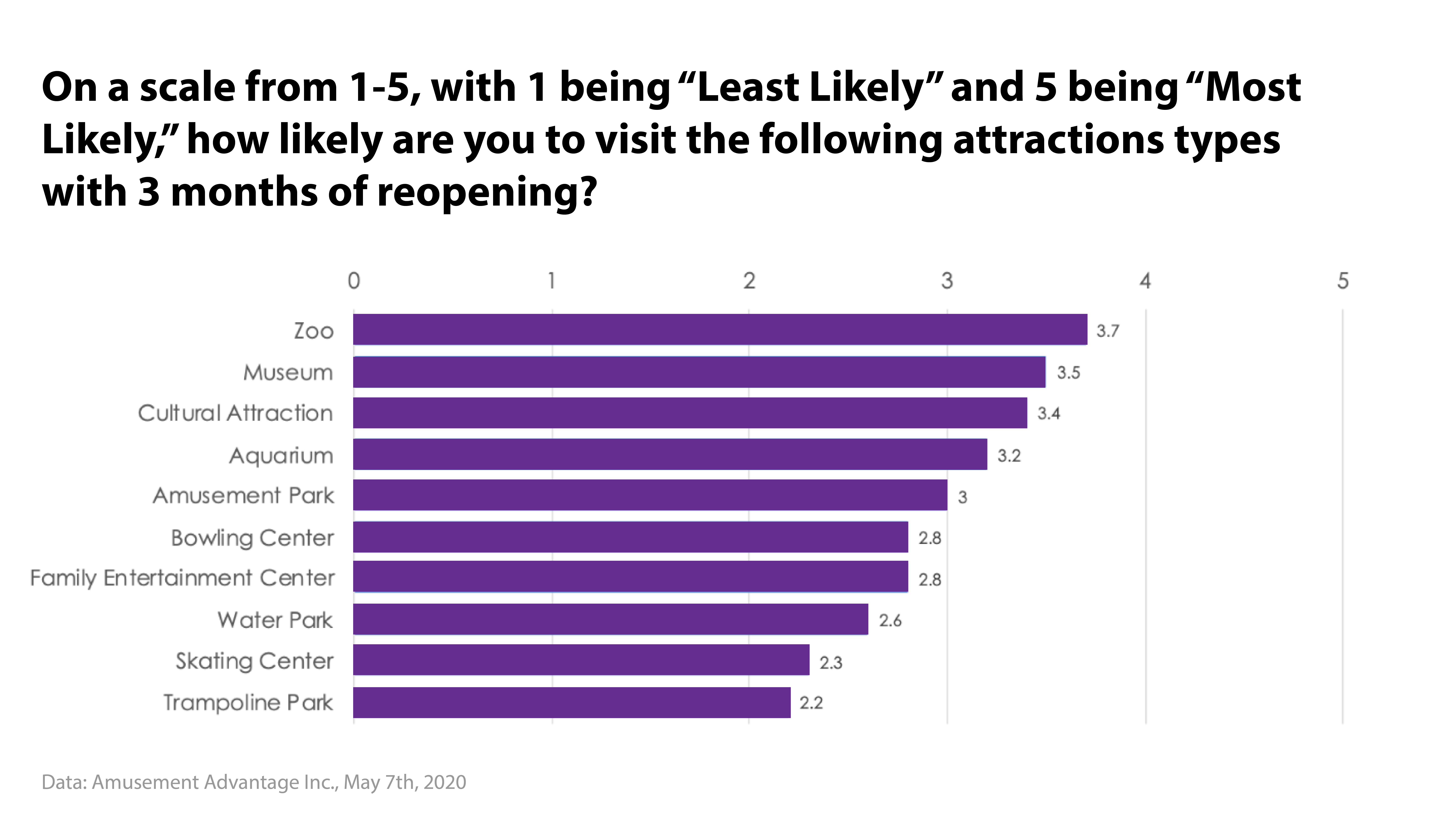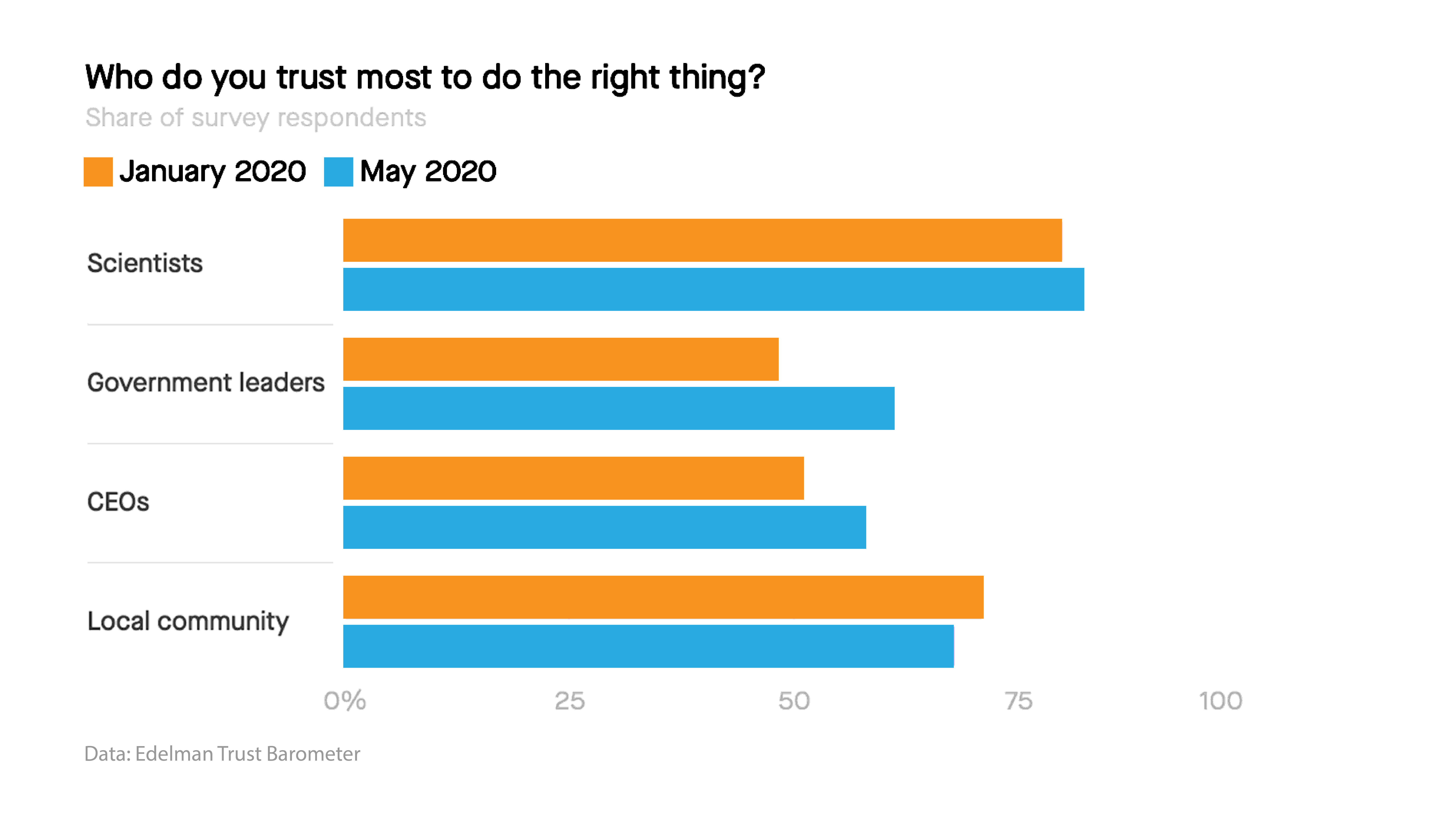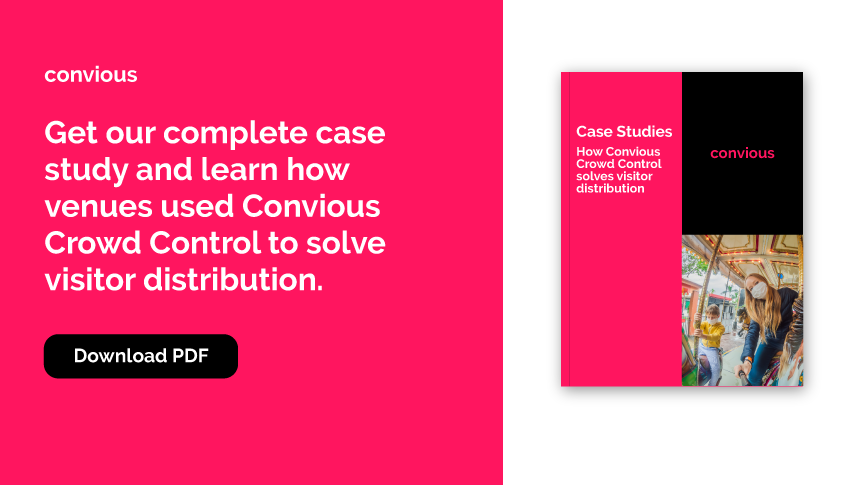No fun without trust: How to regain trust upon your venue reopening
During the past months, every day was marked by uncertainty and confusion around how to act and what to expect. Forced to be patient, venues, and society kept awaiting straightforward and actionable statements with an official and lasting character. But as the current situation progressed, we often received many differing opinions, statements, and regulations bound to change quickly.
Now, however, it appears as we have reached the next level, giving us hope for more stability and clarity, establishing the ‘new normal.’
In the leisure industry, this means venues are working around the clock to prepare a reopening that is only possible if a safe experience for their visitors is guaranteed.
Ensuring the capability of reopening is indeed the most pressing topic, but the opening is not everything that should be considered.
What if you are ready to open, but many of your visitors are hesitant to visit because they are afraid of your venue not being safe enough?
To avoid this, you need to simultaneously consider the reason for your venue’s being, the ones loving what you bring to them: your visitors.
Now more than ever, you’ll need your visitors' trust in you, providing an entirely safe and fun environment.
Trust is a safeguard. It is connected to everything we do. If we don’t fully trust in an action we perform, we cannot enjoy it. If we do not fully trust a colleague or a friend, we won’t ever warm up to them nor share our lives and experiences.
Without trust, connections are weak. And, trust us, you can not afford to have a weak connection with your visitors. Not now, not ever. Trust should be part of your brand because building a strong brand is all about reliability. Thus, you need to put effort into giving them the reassurance they need.
If you have 5 more minutes and want to invest them right, keep reading! We will equip you with the knowledge and tools to build a relationship of trust upon understanding your visitors.
1. What do my visitors want & expect?
2. How can I regain or maintain my visitors' trust in me?
Actions speak louder than words
Emotions vs. Facts
The thing about expectations
The receiving end
Not just any sender
What do my visitors want & expect?
To build up trust, you first need to know entirely what is expected from you and what the counterpart, in this case, your visitor, needs.
Of course, with this, one size won’t fit all. People are diverse, and you can not generalise your visitor into one single group, but for the sake of getting started, let’s look at a study conducted by Amusement Advantage about general guest perceptions.
Over the course of three weeks, they conducted a survey about whether visitors would visit an attraction within three months of reopening to the public.
According to the responses, zoos were at the top of the list of venues they would revisit upon reopening, closely followed by museums, cultural attractions, aquariums, and Amusement Parks. Trampoline parks can find themselves at the bottom of this list. Concluding, even without mentioning regulations, guests clearly preferred mainly either outdoor attractions or large spaces in which people can disperse.

When asked about the reasoning why people might withhold heading to any of these venues, discomfort with being in public and sanitation procedures were voiced the most. The financial burden brought by the pandemic was a notable concern but distinctly lower than the personal discomfort. Closely connected to this feeling, the respondents mentioned sanitisers and masks as sanitation modifications to increase comfort and reduced capacity as the greatest expectation to be met for reopening.
So, now that we know what broad needs and expectations visitors have, next to ensuring those are met, it is crucial to convey this to your visitors so they can trust you entirely.
How can I regain or maintain my visitors' trust?
Actions speak louder than words
The golden rule above all: act before you talk.
Trust is built upon the genuineness of your actions. It is about actually doing the things you are saying and not greenwashing or, in this case, trust washing just to make people believe you acted in a certain way. Trustworthiness is put to an ultimate test when difficult situations or questions arise, and your statements, as well as actions, leave no room for confusion on where you stand.
Step one is up to you committing and doing the best you can without sparing efforts in meeting the requested standards. A good rule of thumb to ensure that you are acting out of genuineness, is learning to act in the desired ways even if no one is watching.
Pouring your efforts into such actions will do your venue well, but it will do your venue best if you can get this across successfully to your prospective visitors.
Emotions vs. Facts
In times of crisis communication, it is crucial to point out that you need to stop thinking facts will be your most convincing statement to establish trust. Your visitors need to regain trust because the crisis has shaken the ground. This is an emotional response triggered by upset people.
Jeff Chatterton, president at Checkmate Public Affairs, put it best: “you cannot answer emotional concerns with factual responses.”
Indeed, you need to make sure your focus is on resolving their feelings and showing empathy and understanding for their concerns.
This does not mean you can’t demonstrate you are well aware of your facts and are handling issues on point. Quite the opposite! By showing expertise in topics most pressing to your visitors, such as sanitisation and physical safety, you’re easing their emotions as you consider their thoughts and feelings. The way you frame what you say, however, should be personal and always answer the question of why you are doing what you are doing.
The thing about expectations
Meanwhile, honesty and transparency count as the utmost importance.
Don’t make promises you can’t keep. By giving an accurate image of the situation, you make sure you manage your visitors’ expectations.
Nothing is worse than being disappointed because our expectations were built up unrealistically. An ad telling the world how everything is just as it was before but then canceling live performances and meet-and-greets will backlash and demolish any trust you have built up till then and will leave you with angry customers.
You’re better off being honest about your venue's current state and show how some limitations won’t ruin all the fun that you do have to offer! And then surprise your visitors with even more. Even the tiniest gestures count. Pleasant experiences appear to be valued even more if they occur unexpectedly.
Always undersell and overdeliver.
The receiving end
Are you wondering who the ones you should be talking to are?
As always, communication is only effective if you aim at the right group of people. As we picked up before, due to restrictions regarding travel, for most venues, it makes sense to concentrate on local markets. Moving on, it is more important than ever to focus on those who want to listen or actively engage with you.
To break it down, besides your die-down supporters who are always with you, in most cases, we have two relevant groups to consider: those sympathising with you and those who might still be skeptical.
The sympathisers are the ones understanding you and your situation. As you try to sympathise with them, they are sympathising with you. Their mindset is already aimed at understanding, but building trust will still involve some effort.
The latter are the ones who ask all the difficult, but still justified questions because they are not convinced just yet. You might be wondering why you should focus on a group that is obviously primed with a skeptical mindset. Here is why: despite their skepticism, they are willingly and voluntarily engaging in a conversation with you! This means they are not turning from you but to you for more insights. This is an opportunity and means you need to actively engage in such conversations when they arise.
Consider it as the ultimate test if your communication is as empathetic and true as possible to convince or learn from the pushback you get. Besides that, most likely, others will listen to what this group has to say, which means gaining their trust might kickstart a domino effect.
Shortly put, these are the two groups who are willing to engage with you, and thus, they are the ones, directly and indirectly, requesting from you to provide them with what they need to finally trust you again.
To find them, as a starting point, you should follow social media hashtags and groups connected to your venue and the issues surrounding it. Besides that, remember to keep it mostly local, use geo-location filters to dive into the current discussions in your region.
Although these two groups might appear as a small pond compared to the bigger sea, this focused effort will eventually pay off without losing resources to the mass that you can’t convince.
Why is that? Because there will always be a group that won’t believe or trust you no matter what you are saying. That is why it is important to focus on those who are open to a discussion. It is time to strengthen your bond with them and get a foot in the door.
Not just any sender
Lastly, it is important for you to find the right communicator to get your messages across. Generally speaking, people are fond of seeing something with their own eyes or through the eyes of someone they can relate to. Considering this, the first idea might be getting in touch with park ambassadors and letting them experience your attraction in exchange for promoting this authentic encounter.
Further, it is important to use the tools you have at hand: continuously update your website, use pop-ups to highlight updates or certain information, consider sending out a newsletter to your customer base, and keep social media up and running to enter and steer relevant conversations.
This is also the point in time to think about other touchpoints with your audience. Think of it this way: everything you do is sending a message! The way you present your website, your social channels but also how you set up your ticketing, especially throughout current times. So, you also need to consider what message you are sending with your online shop and the tickets and offers you sell. Luckily, a while back, we have compiled a list to start this consideration process right: 6 key features your online ticketing solution should have.
Further, research conducted by the Edelman Trust Barometer shows that the public shifted its view of which sources they primarily trust and listen to. At the top of this list are scientists, followed by government officials and local communities, all being way ahead of CEOs. 
This tells us that scientific, governmental, or official local endorsement is what you should be seeking to boost your trustworthiness. To do that, contact local authorities and spokespeople and ask them for a statement regarding the safety measures at your venue. Or use the scientific information provided by the developers of hygiene products to back-up your reasoning for your cleaning procedures.
All together, pairing your commitment with deep empathy and expertise about your visitors' concerns will allow you to reach out to your visitors in a meaningful way, laying the first building blocks to regain or maintain your visitors' trust.
By throwing in unquestionable honesty and transparency to manage your visitors’ expectations and adapting the right communicator to get this message across will keep your strategies building blocks stick together when addressing your sympathisers and your skeptics.
As you stay true - they will find their way to you.
